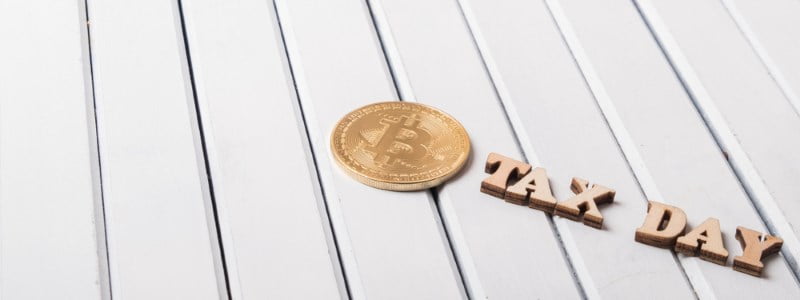Crypto taxes can be quite challenging to complete correctly. In this guide, we’ll take a look at a straightforward EOFY crypto tax planning checklist to help you get on top.
Whether you’re a day trader, long-term HODLer, or high-frequency algo trader, the taxman is interested in what you’ve done with your cryptocurrency over the course of the financial year. If you have bought, sold, or traded crypto over the last financial year, it’s sensible to do some tax planning and assess the impact your crypto-related actions will have on your tax report.
Whether you’ve made a loss or a profit, you’ll need to declare everything on your annual return. The process of collecting, organizing, and submitting all of your trade, sale, and purchase information, however, can be a headache.
In this guide, we’ll outline a basic crypto trading tax plan and present a short EOFY crypto tax planning checklist that will ensure you have everything ready for your tax return.
The ATO and Cryptocurrency: What You Need to Know
The Australian Taxation Office offers detailed information on the way cryptocurrencies are treated. According to the ATO, cryptocurrencies aren’t defined as money or foreign currency. Cryptocurrencies are instead classified as property, or an asset for capital gains tax purposes.
- The ATO applies capital gains tax to any event in which cryptocurrency is disposed of. These events include:
- The trade or exchange of cryptocurrency for other cryptocurrencies, or for any fiat currency
- The use of cryptocurrency to pay for goods and services
- The sale of cryptocurrency, or gifting of crypto
Developing an effective crypto tax strategy first involves establishing whether you are a business or professional crypto trader, or a personal crypto trader.
Businesses
- There are a number of crypto-related activities that generate business income. In most cases, the cryptocurrency generated through these activities is considered business income, and is taxed accordingly. These activities may include:
- Professional crypto trading, or high-volume crypto trading
- Large-scale or professional cryptocurrency mining
- Accepting cryptocurrency at your business, or other business-related crypto transactions
- The operation of cryptocurrency-related businesses
Personal
- Cryptocurrency-related activities that do not fall under the above definitions are considered personal investment gains or losses. In this case, capital gains tax is typically applicable. Personal cryptocurrency activities include:
- Casual, hobby, or intermittent cryptocurrency trading
- Hobby cryptocurrency mining
- Purchasing cryptocurrency with the intent to hold for an extended period of time.
A Crypto Tax Bill – Are You Prepared?
In order to generate an accurate crypto tax return and minimize the likelihood that you will be over-taxed, it’s important to follow this process:
EOFY Crypto Tax Checklist:
- How many exchanges have you traded on in the last financial year?
The first step in gathering all of the information you need for your tax return is to assemble a list of every exchange that you have used to buy, sell, or trade cryptocurrency in the last year. This data should be complete with all historical data. - Have you received any cryptocurrency as income?
Crypto trades and cryptocurrency received as income are taxed differently. Any action that generated cryptocurrency income, such as cryptocurrency mining or the acceptance of cryptocurrency as a payment method as a business, must be logged along with the date and time it was received. It’s essential to record the date upon which each payment was received in order to prevent over taxation. - Did you receive any cryptocurrency as a gift?
Gifted cryptocurrency is taxed in a different manner than traded or income cryptocurrency. All cryptocurrency received as a gift should be logged along with the date that it was received - Did you receive any crypto from airdrops, chain splits, or forks?
Airdrops and forks are excellent — commonly providing cryptocurrency holders with “free” crypto. Just because crypto generated in this manner is “free”, it doesn’t mean it isn’t taxed — it’s essential to keep a log of where this crypto came from, and when, for accurate taxation.
Collecting the above information can be a complex process — fortunately, there are several crypto tax software platforms that seamlessly integrate with most major exchanges and automatically collect relevant trade data. These are essential to any EOFY Crypto Tax Checklist and highly recommended.
- In order to ensure that you are fully compliant with all ATO crypto tax regulations, there are some basic tips that are worth following:
- Keep accurate records: Whilst crypto tax software like Cointracking or BearTax are great, don’t rely on automated tax software completely — keeping track of crypto trades as they occur helps you develop a clearer picture of your tax obligations
- Consider HODLing: If you hold your cryptocurrency for more than 12 months and don’t trade other positions, you could be eligible for a 50 percent CGT discount
- Assess possible deductions: Cryptocurrency trading and investing is complex, and comes with a broad spectrum of different possible deductions. Have you lost crypto in an exchange hack? Are you operating cryptocurrency mining hardware? You might be eligible for a deduction
When To Engage Professional Services
If you’ve made more than a handful of trades it’s likely your crypto tax situation is more complex than for most traditional accountants to do correctly or efficiently.
Traders and Investors of Crypto will certainly benefit from having a specialised crypto accounting firm assist them with a fluid tax preparation process but also with a proactive approach to EOFY crypto tax planning and being ready for anticipated movements around regulations.
Cryptocurrency tax is new and constantly evolving. Often, the process of collecting EOFY crypto tax information raises more questions than it answers. Determining whether you are eligible for deductions can be extremely complicated. If you’re in doubt about your crypto tax obligations, reach out to Fullstack today for a consultation.
Was this article helpful?
Related Posts
- Cryptocurrency Mining Taxes
If you're currently mining crypto, it's important to learn how cryptocurrency mining is taxed. This…
- Crypto Trader vs Crypto Investor
Working out whether you are a crypto trader or investor at tax time can be…
- Businesses Accepting Crypto — Tax Implications
If you're considering accepting cryptocurrency payments at your business, this guide will help you to…
- Crypto Tax for Holders, Traders and Hobbyists – The Basics
Cryptocurrency tax can be complicated — but it doesn’t have to be. We’ll proceed to…

















